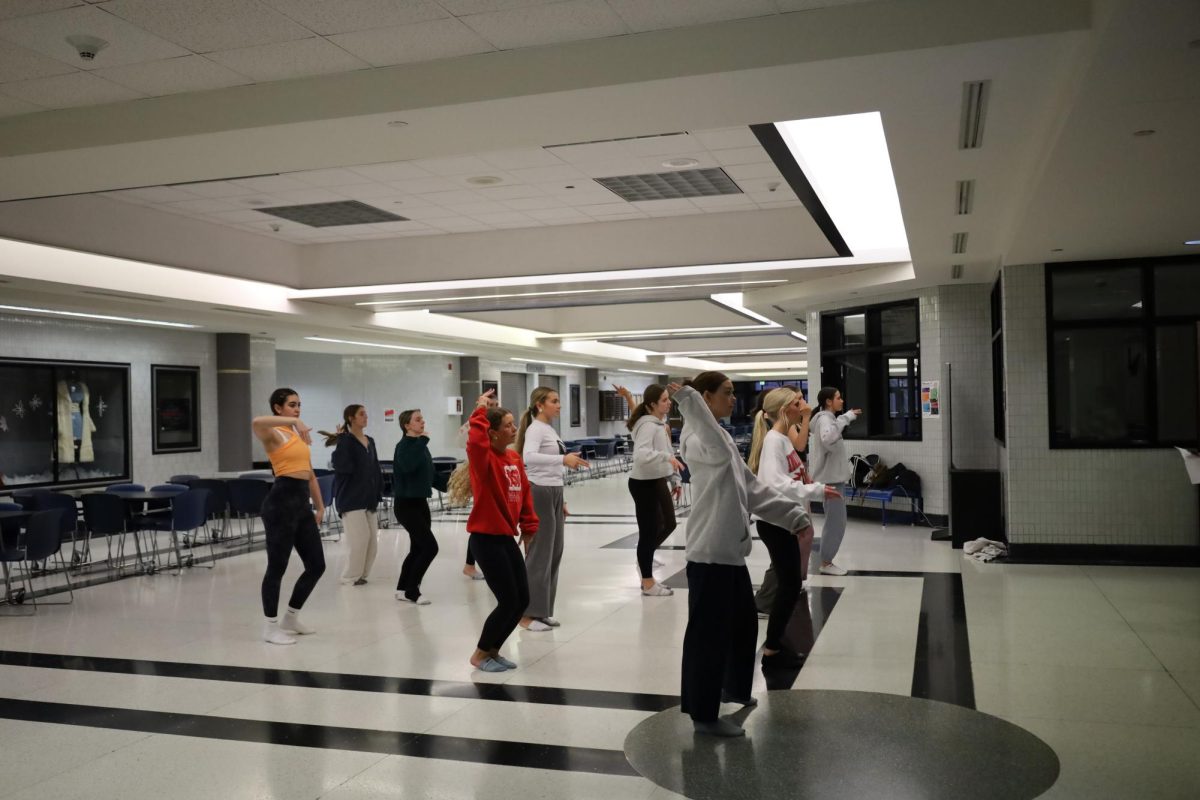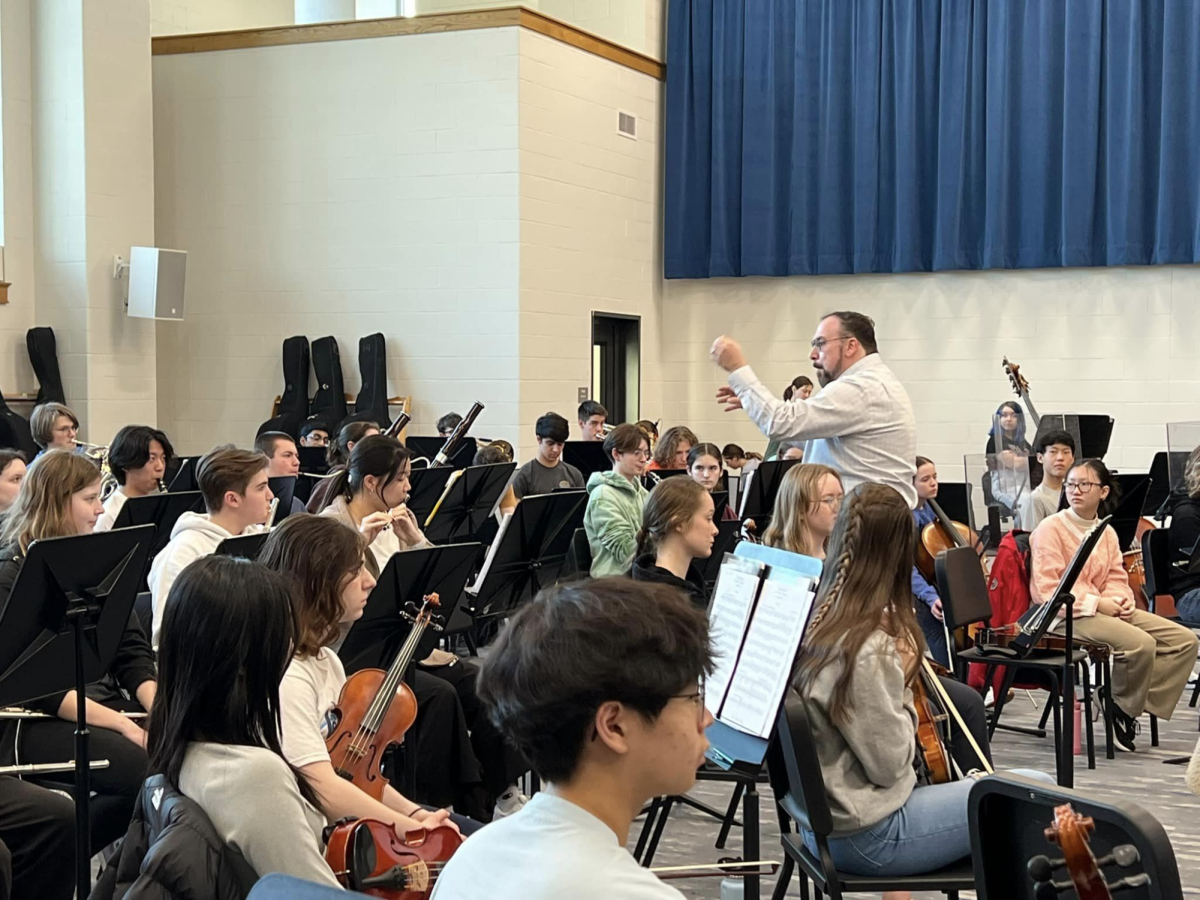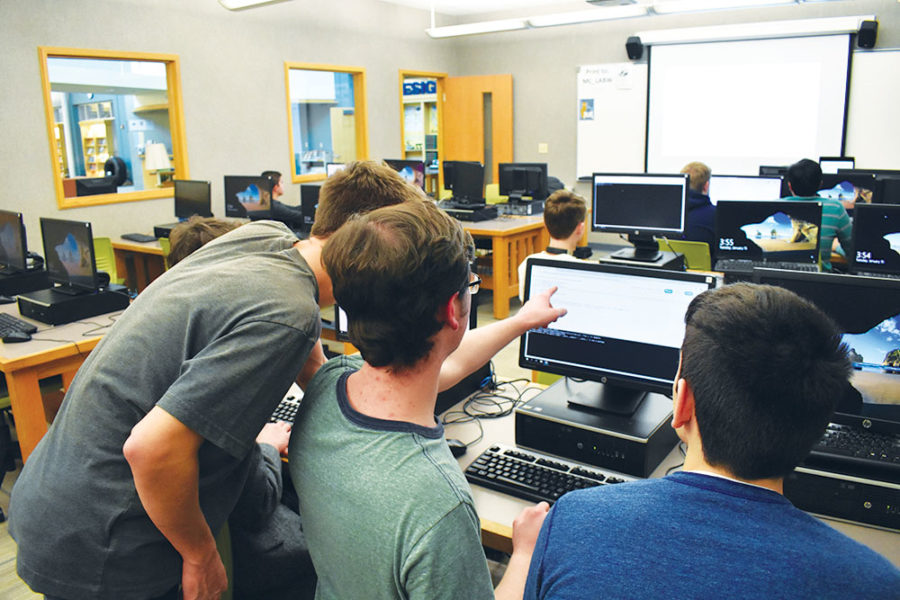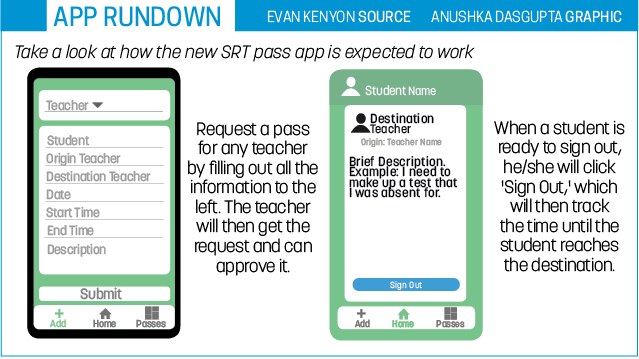How did you get involved with coding?
It started a long time ago. My dad has always been interested in it, and in elementary school I got a book (about) really basic coding because I was fascinated with the way computers worked and I knew I wanted to change the way they worked and just make programs of my own. So having that first book, it interested me a lot because it was really simple and I could make images and text displays really easily. I was immediately captivated and from there I just did a little coding throughout middle school and I really ramped it up in high school by taking AP Computer Science A and joining and starting clubs that are related to coding.
What exactly is the Congressional App Challenge?
Over half the Congressional districts in the (United States) sponsor the Congressional App Challenge. In each district that has it available, middle and high students from all across the district submit applications or websites or really any piece of code that does something cool and then it gets judged by a team of experts. If you win, it means that yours was the most innovative app that was submitted in the district and you get to go to a conference in D.C. to meet the other people who won the Congressional App Challenges in their districts and also to talk with different representatives and government officials.
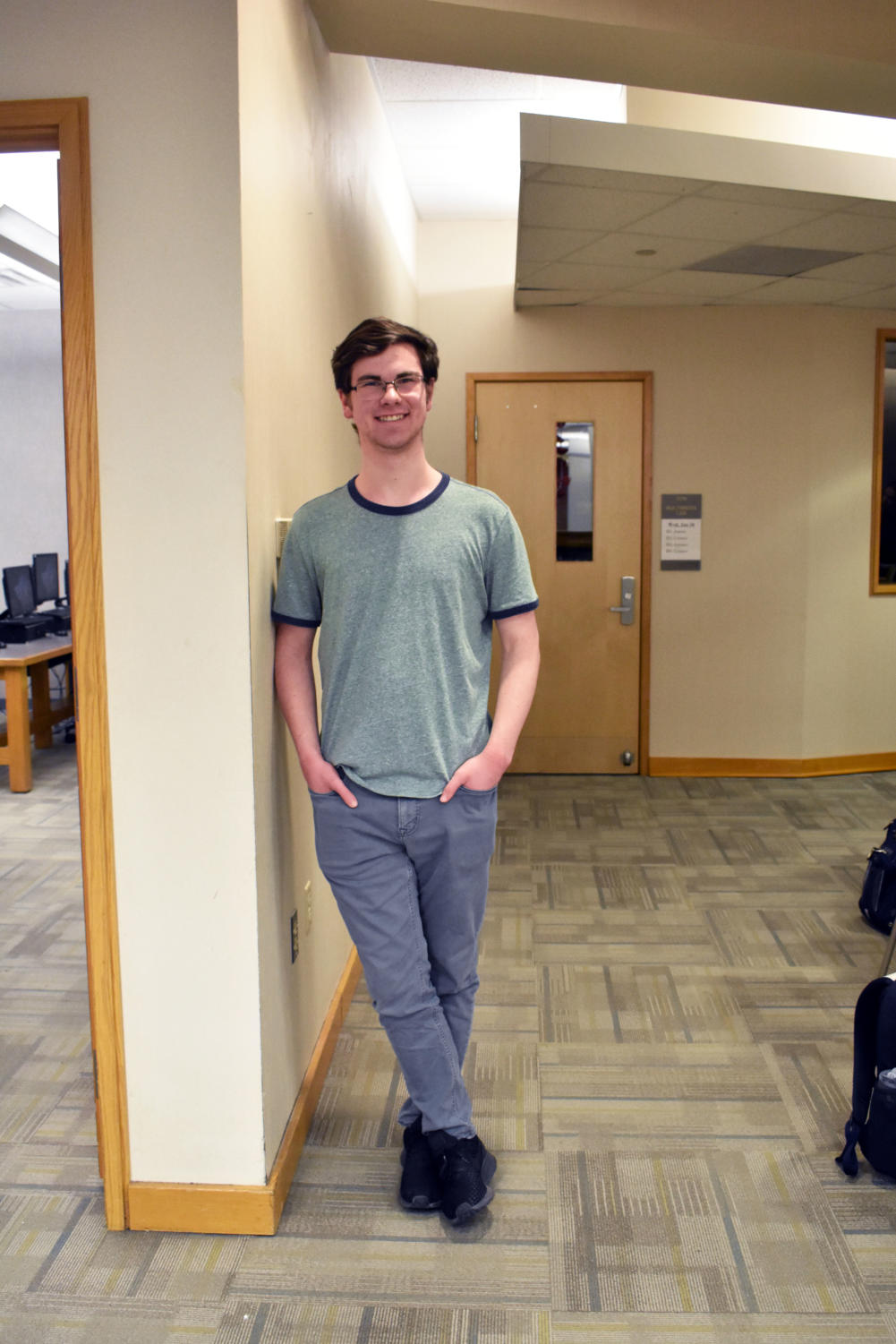
What does Code for Change do?
Armaan (Goel, Code for Change president and senior,) reached out to me the summer before junior year and asked me if I wanted to help him start this club. The whole premise is we code up projects for different nonprofits, government organizations and the school (to) help make people’s lives easier and help improve the community.
Why did you guys decide to develop the app you did?
Back in junior year our computer science teacher emailed us about the idea of making an app for SRT passes. At the time, we were really busy with a different major project so we decided to not pursue that one for the moment. But then summer before this year, we emailed (Principal Tom) Harmas about meeting with him to talk about different ideas or projects we create that could help the school. At first we didn’t even mention the SRT pass idea. We had the idea in mind and we had some basic code that we could show him but hadn’t actually talked to him about it. At the meeting he asked us what ideas we had and this was our big idea and he really liked it and we just went running from there.
What improvements do you hope to make to this app in the future and what do you plan to do with it?
We’re almost done with the app. All the core functionality is there, (but) are just a few minor bug fixes that we need to do at the moment so that’s the first step which is just fixing all those bugs. Then, we thought about different little features that we could add like letting students have a favorite teachers list. We think that we’ve covered most of the features that people would want but before we release it we’re planning on asking a few of our teachers to play around with it to see what they think we should change because the whole ideas is it’s not only going to be used by students but also teachers so we want to see what they think. Just implementing a few minor fixes and changing a few minor things is all we’re looking for right now. If a teacher brings us a good idea that we hadn’t thought of we’ll probably implement it.
How do you hope this app will impact life at Carmel High School?
From my experience, the SRT pass system with the paper is really stressful for a lot of students because people I feel like are always scrambling to get an SRT pass the period before. They’re not really sure ‘Oh, when’s this test’ and they find out the period before or very close to the test and they really need an SRT pass, but sometimes it’s hard to find a teacher. That’s like the student’s perspective from the teacher’s perspective, it’s a lot easier instead of having to write a bunch of passes the five minutes before SRT if they can just create them for students electronically or approve a students request electronically. Additionally, we’re talking about an administrator feature which allows for administrators to have a lot more accountability for students because they can see that the student signed out of this classroom at this time but never signed into their other classroom. (If) their parent called (to ask) where (the student is), they’ll be able to see the exact time where they signed out of different classrooms and stuff like that. (It will be) a lot easier to keep track of student’s whereabouts and like maintain safety in case of a emergency.
What do you think the importance of computer science is?
I would say just changing the world we live in for the better. I think it’s necessary for everyone to understand the basics of computers because they’re becoming more and more important in our everyday lives. It’s almost a necessity to have some sort of device that can access the Internet. I think computer science is important to understand how that device works. It just gives people insight into ‘okay, I have this problem with my computer, how can I fix it?’ or ‘I want to make this program that’s not available, how do I do that?’ It’s just helping people improve their lives (and) changing the way computers work and making new programs.
Do you think the Congressional App Challenge is a good thing?
I would say it’s a good thing because I don’t think it too competitive, it doesn’t hurt people’s mental health—it’s not that type competition. I saw (that) because my close friend, he also submitted an app and we were wishing each other luck and all that stuff. We really wanted to submit it to see if we could win, but the whole motivation behind it wasn’t about winning the challenge. It was about just making an app that you could submit to the challenge. I think it gives students more motivation to work with computer science because they can see ‘oh, government officials actually care about computer science’ and there’s actually awards for it, so it shows them that it matters.
Is there anything I haven’t asked that you think readers should know?
About Code for Change: we’ve done a lot of really good projects like the refugee-relocation nonprofit. We made them a long-term volunteer management system and that was our first really big project. We’ve expanded a lot this year to 30 to 40 members compared to like 10 to 20 last year and we’re working on a lot of cool projects. I think it’s really beneficial that computer science is being used for good, it’s being used for the betterment of the community.































![British royalty are American celebrities [opinion]](https://hilite.org/wp-content/uploads/2024/03/Screenshot-2024-03-24-1.44.57-PM.png)




















![Review: Quiet on Set: The Dark Side of Kids TV is the long awaited exposé of pedophilia within the children’s entertainment industry [MUSE]](https://hilite.org/wp-content/uploads/2024/04/unnamed.jpg)
![Review: “The Iron Claw” cannot get enough praise [MUSE]](https://hilite.org/wp-content/uploads/2024/04/unnamed.png)
![Review: “The Bear” sets an unbelievably high bar for future comedy shows [MUSE]](https://hilite.org/wp-content/uploads/2024/03/unnamed.png)
![Review: “Mysterious Lotus Casebook” is an amazing historical Chinese drama [MUSE]](https://hilite.org/wp-content/uploads/2024/03/0.webp)
![Thea Bendaly on her Instagram-run crochet shop [Biz Buzz]](https://hilite.org/wp-content/uploads/2024/03/IMG_0165-1200x838.jpg)
![Review in Print: Maripaz Villar brings a delightfully unique style to the world of WEBTOON [MUSE]](https://hilite.org/wp-content/uploads/2023/12/maripazcover-1200x960.jpg)
![Review: “The Sword of Kaigen” is a masterpiece [MUSE]](https://hilite.org/wp-content/uploads/2023/11/Screenshot-2023-11-26-201051.png)
![Review: Gateron Oil Kings, great linear switches, okay price [MUSE]](https://hilite.org/wp-content/uploads/2023/11/Screenshot-2023-11-26-200553.png)
![Review: “A Haunting in Venice” is a significant improvement from other Agatha Christie adaptations [MUSE]](https://hilite.org/wp-content/uploads/2023/11/e7ee2938a6d422669771bce6d8088521.jpg)
![Review: A Thanksgiving story from elementary school, still just as interesting [MUSE]](https://hilite.org/wp-content/uploads/2023/11/Screenshot-2023-11-26-195514-987x1200.png)
![Review: When I Fly Towards You, cute, uplifting youth drama [MUSE]](https://hilite.org/wp-content/uploads/2023/09/When-I-Fly-Towards-You-Chinese-drama.png)
![Postcards from Muse: Hawaii Travel Diary [MUSE]](https://hilite.org/wp-content/uploads/2023/09/My-project-1-1200x1200.jpg)
![Review: Ladybug & Cat Noir: The Movie, departure from original show [MUSE]](https://hilite.org/wp-content/uploads/2023/09/Ladybug__Cat_Noir_-_The_Movie_poster.jpg)
![Review in Print: Hidden Love is the cute, uplifting drama everyone needs [MUSE]](https://hilite.org/wp-content/uploads/2023/09/hiddenlovecover-e1693597208225-1030x1200.png)
![Review in Print: Heartstopper is the heartwarming queer romance we all need [MUSE]](https://hilite.org/wp-content/uploads/2023/08/museheartstoppercover-1200x654.png)























![Review: Ladybug & Cat Noir: The Movie, departure from original show [MUSE]](https://hilite.org/wp-content/uploads/2023/09/Ladybug__Cat_Noir_-_The_Movie_poster-221x300.jpg)

![Review: Next in Fashion season two survives changes, becomes a valuable pop culture artifact [MUSE]](https://hilite.org/wp-content/uploads/2023/03/Screen-Shot-2023-03-09-at-11.05.05-AM-300x214.png)
![Review: Is The Stormlight Archive worth it? [MUSE]](https://hilite.org/wp-content/uploads/2023/10/unnamed-1-184x300.png)


